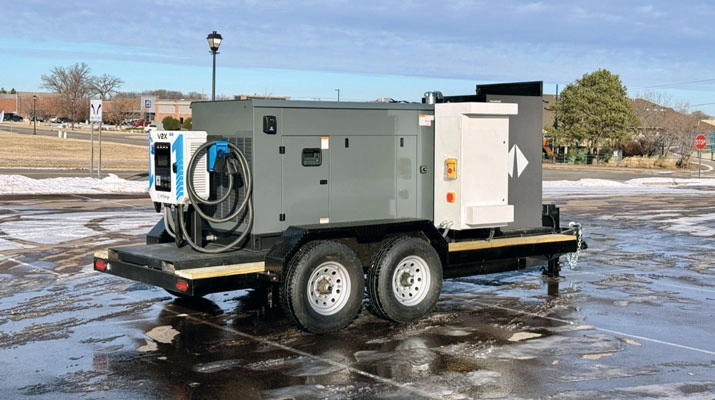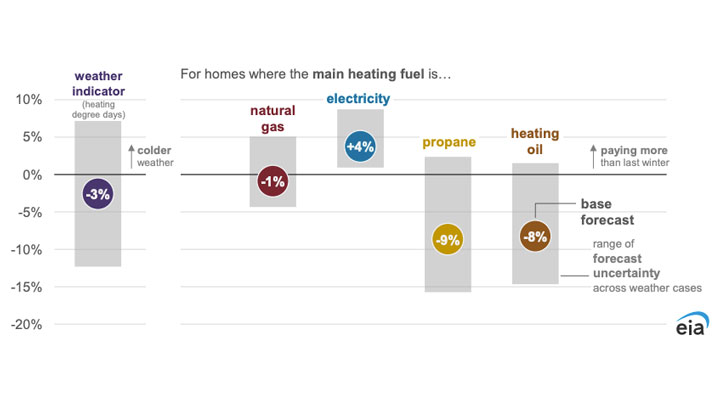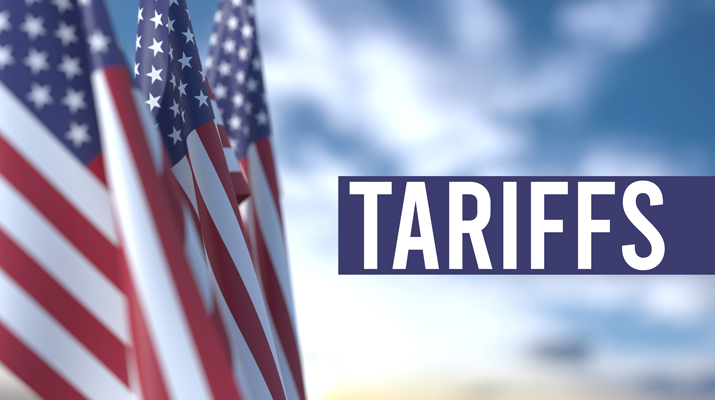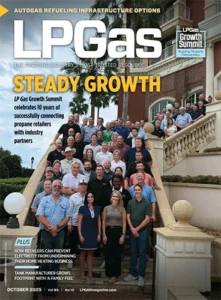2025 LP Gas Rising Leader: Scott Dougherty
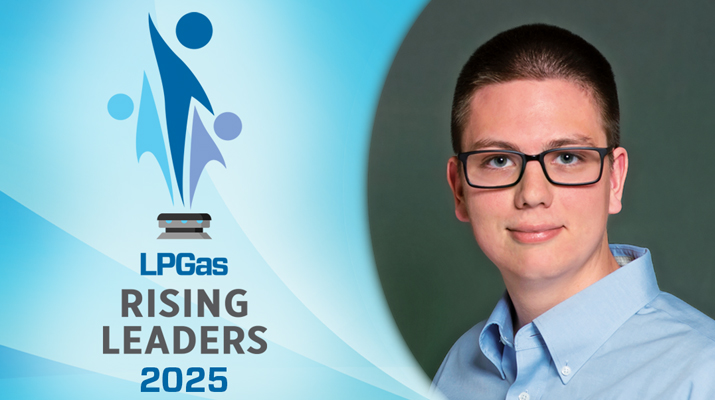
Scott Dougherty
Company: Superior Energy Systems / Columbia Station, Ohio
Job title: Sales engineer
Years in the propane industry: 13
How did you get your start in the propane industry?
I began working at Superior Energy Systems (SES) at age 16, filling propane bottles and working in the fabrication shop. When I began my engineering degree at Cleveland State University, Superior helped me become a draftsman, working on red-line drawings and learning more about propane infrastructure builds and safety processes. For my final capstone project, I designed a three-dimensional model of a propane terminal to explain an automation system that I designed to reduce skimmants on a midstream terminal and manage the terminal remotely. This process led to my current role as sales engineer.
How do you help lead your company in your current role?
I help manage and track 20-plus jobs annually throughout the build process in midstream, industrial and autogas subsets. In addition, I play a role in educating and communicating with customers by explaining technical aspects of products and guiding them on product choice based on needs and budget as well as applicable code guidelines. I also assist in strategy and development of new product lines as well as redesigning current products to fulfill customer needs, including total redesign and UL recertification.
What change would you like to see to the propane industry to ensure its success?
I believe the most important two things the propane industry can do to ensure its success is keeping pace with technology and continuing to spread the word about propane’s ability to answer the call as a premium energy source. SES created the first propane autogas dispenser in 2006, and since then we have evolved dramatically in terms of technology. We now offer proprietary, web-based fleet management software embedded in our dispensers and top-of-the-line equipment in terms of emissions, safety and reliability. Those changes have catapulted autogas to become one of, if not the top choice, for alternative fuels. The same goes with our midstream and industrial builds, which have evolved to keep pace with changes in safety and growing demand for user-friendly and efficient equipment. I also believe we cannot let up on spreading the word about all the different ways propane can be used. With the rise in e-commerce, SES has seen a dramatic uptick in the number of primary and standby systems installed in warehouses throughout the country where natural gas is not and may never be available. We also continue to see a rise in propane storage facilities across the country, meaning more and more homes and businesses are relying on propane as a safe and economically stable fuel. The more our industry gets outside of the industry bubble to talk about these solutions, the better we all will be.
What does your generation offer to the propane industry that previous generations did not?
I believe our generation offers the propane industry an ability to see outside of the propane box. I think for many years, the older generation has stayed close to each other, serving the same customers and doing the same things. While that is certainly beneficial, I think the new generation, who has exposure to so many media sources, sees what they can do by moving outside of the box. We have the ability to use our resources in different ways to get the propane message out and, in turn, bring in a new wave of customers who would never have been exposed to the advantages of propane. I also believe that this new generation can better use their resources to expand the technology aspect of propane solutions, looking beyond the basics of equipment and finding ways to offer answers to changing energy challenges.
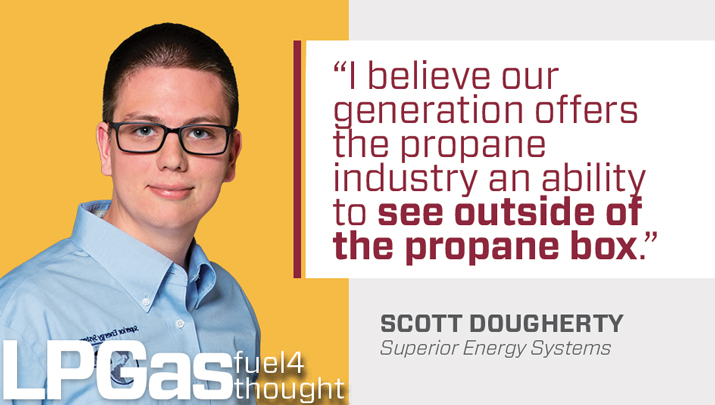
What specific technologies are you using (or plan to use) to support business operations?
Recently we installed a display in our warehouse that is tied to Smartsheet, which allows everyone at SES to track job progress, build requirements, etc. This has been very helpful for our team to stay organized, especially during our busy season. We also use various engineering software, including AutoCAD and various Rockwell applications for product development, design and builds.
What propane industry associations are you involved with at the state and/or national level?
I serve as one of Superior’s certifications consultant for Underwriters Laboratory and the Canadian Standards Association and work closely with certification engineers during both new projects and upkeep of current certifications. This includes quarterly inspections and working to ensure all parts used meet standards requirements. I also work closely with NTEP (National Type Evaluation Program) and Measurement Canada, which means working with local and state measurement inspectors in the autogas subset during new installs to verify current autogas dispenser models meet and perform beyond code requirements. This also includes working directly with customers when they encounter inspectors/measurement technicians who are unfamiliar with propane autogas. I also participate and speak at various propane conferences, trade shows, regulatory events and meetings on behalf of both SES and PERC (Propane Education & Research Council). SES believes a rising tide lifts all boats and encourages us as employees to commit time and energy to both state and national affiliates who are committed to that rising tide.
Is there anything else you’d like to tell us about yourself, your company and/or the propane industry?
I worked from the bottom up at SES, which has allowed me to learn so many aspects of the propane industry. SES has supported me at every step and encouraged me to pursue my education while working and continuing to learn. I feel like SES and the propane industry as a whole has so much to offer in the energy landscape, and I am excited to play a part in that.








